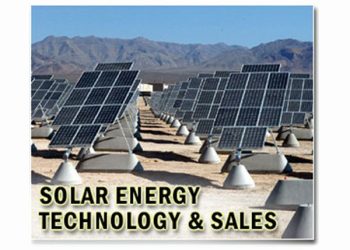As solar technology advances, traditional panels are now being joined by “smart” solar panels, which provide even greater efficiency, control, and benefits. Smart solar panels represent the next step in renewable energy, equipped with technology that allows you to monitor, optimise, and maximise your energy production in real-time.
Smart solar panels vs. traditional solar panels
Smart solar panels and traditional solar panels harness solar energy efficiently, but they use different technologies and functionalities. Smart solar panels use advanced features like microinverters and integrated sensors. Each panel in a smart system has its own inverter, which allows for individual performance monitoring and optimisation. Smart sensors track data such as temperature, shading, and energy output, providing detailed insights into how the system is performing.
On the other hand, traditional solar panels convert sunlight into electricity through PV cells. They rely on a central inverter to convert the generated DC electricity into AC for home use. While effective, these systems lack the ability to monitor performance in real time or optimise energy production based on changing conditions.
The benefits of smart solar panels
· Enhanced efficiency: These panels are designed with advanced sensors and tracking systems that help them capture the most sunlight possible. They can change their angle to follow the sun as it moves across the sky throughout the day, therefore, they maximise energy production. On days when there’s not much sunlight, the panels can still generate reliable amount of energy.
· Energy storage solutions: Smart solar panels usually come with built-in battery storage systems, which means any extra energy made during the day can be stored. It can also be used later on when there isn’t much sunlight, at night, or on cloudy days.
· Weather prediction technology: Smart solar panels come with advanced weather prediction technology that can accurately forecast the amount of sunlight expected in the coming days. This allows homeowners or business owners to adjust the settings of the panels to maximise energy production.
· IoT integration: With IoT, smart solar panels can communicate with other devices and systems. This connection allows them to be monitored and adjusted in real-time.
· Self-cleaning surfaces: Some smart solar panels come with self-cleaning surfaces by the use of rainwater or automated cleaning systems to maintain their efficiency without the need for manual maintenance. This ensures the panels are always clean and at peak performance.
· Grid management: Smart solar panels can communicate with the energy grid and provide extra energy when there is high demand and take energy from the grid when they need it. Thus, this helps keep energy supply stable and reduces the stress on the grid by balancing out energy production and consumption.
· Energy sharing platforms: Ideal for communities using smart solar panels, energy-sharing platforms allow people to share extra energy with their neighbours or sell it back to the power grid. This promotes a more collaborative and friendly energy system.
Smart solar panel brands in Australia
Below are solar panels that come with smart integration:
SunPower
SunPower provides high-quality PV panels with varying aesthetics and wattages. Their two main types of solar technology are front-contact and back-contact solar modules. Their panels are compatible with smart inverters that can be monitored and controlled remotely.
REC
REC is another leading solar panel manufacturer that produces high-quality solar panels that can be combined with smart inverters to provide real-time monitoring. It also has a remote control that lets you adjust settings and optimise energy usage to maximise savings. Lastly, REC solar panels feature advanced diagnostics which allows you to identify and troubleshoot potential issues quickly.
LONGi
Another global leader in the solar industry, LONGi provides high-efficiency solar panels. When integrated with smart home systems, the panels can optimise energy usage in which they can automatically adjust power output based on real-time energy needs. The panels also reduce energy consumption by optimising usage patterns and they can also be integrated with smart thermostats and other devices for a more comfortable living environment.
How much do solar panels cost?
Before you invest in smart solar panels, you need to weigh the initial costs and the long-term benefits. For the upfront costs, smart solar panels come at a higher price compared to traditional panels due to integrated technology like sensors and microinverters. These make the initial investment steeper, though many find the benefits outweigh the expense over time.
Also, there are incentives and rebates you can take advantage of like Small-Scale Technology Certificates (STCs) and state-based rebates that can help reduce the upfront costs of solar installations. Smart panels may also be eligible for additional rebates due to their enhanced energy efficiency.
While the initial cost is higher, smart solar panels can deliver greater savings on electricity bills through optimised energy production and lower maintenance needs. This usually results in a faster return on investment compared to traditional systems.
Smart solar panels are changing how we harness solar energy, bringing a range of advanced features that boost efficiency, control, and energy savings. They represent a forward-thinking choice for those seeking to maximise their energy production and reduce reliance on the grid. While they come at a higher initial cost, incentives and long-term savings often make them a worthwhile investment.
Energy Matters has been in the solar industry since 2005 and has helped over 40,000 Australian households in their journey to energy independence.
Complete our quick Solar Quote Quiz to receive up to 3 FREE solar quotes from trusted local installers – it’ll only take you a few minutes and is completely obligation-free.

















